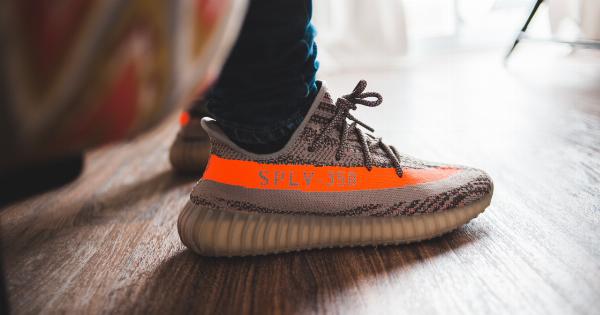As we grow old, the risk of developing various health issues increases. Some of these medical conditions exhibit symptoms that become noticeable through our feet.
The color, texture, and feel of our feet can give us clues about what’s going on inside our body. Here are some of the signs of serious health issues that your feet may reveal:.
: 1. Swollen Feet
One of the most common signs of poor health is swollen feet. Edema, which is swelling due to fluid accumulation in the tissues, can be a sign of heart, kidney, or liver disease.
Swollen feet can also be a sign of venous insufficiency or a side effect of medications. Poor circulation and blood clots can also cause swelling. If your feet are swollen for no apparent reason, consider seeking medical attention to address the underlying cause.
: 2. Numbness, Tingling, or Burning Sensation
These sensations in your feet can be a sign of peripheral neuropathy, a condition that affects the nerves carrying signals from your brain and spinal cord to your legs and feet.
It can be caused by diabetes, vitamin deficiency, nerve compression, and other medical conditions. Ignoring these symptoms can lead to serious complications, so it is crucial to consult with your healthcare provider if you experience them.
: 3. Cold Feet
Cold feet can be a sign of poor circulation, which can result from several underlying health issues. Peripheral artery disease, atherosclerosis, and some autoimmune disorders can cause decreased blood flow, leading to cold feet.
If your feet feel overly cold, numb, or tingly, it is essential to seek medical attention.
: 4. Foot Pain
Foot pain can be a sign of several underlying health issues, such as plantar fasciitis, flat foot, gout, arthritis, and nerve damage. Pain in your feet can also result from pressure on the nerves or inflammation due to injuries.
The pain can be acute or chronic, and it is essential to seek medical attention to prevent further complications and relieve pain.
: 5. Yellow Nails
If your toenails are yellow, it can be a sign of fungal infection. Also, yellow nails can indicate psoriasis, thyroid disease, or diabetes. If you notice yellow nails, contact your healthcare provider for appropriate treatment options.
: 6. Clubbing of the Toes
If the tissue under your toenails feels swollen, and the nails curve downward over the fingertips, it is called clubbing. It can be a sign of several underlying health issues, including lung disease, heart disease, and liver disease.
If you notice these symptoms, contact your healthcare provider to address the underlying condition.
: 7. Red Flags
Redness in your feet can be a sign of several underlying health issues, including gout, infection, or inflammation.
Red or blue toes can be a sign of Raynaud’s disease, a condition where your blood vessels feel spasmic and restrict the blood supply to your feet. If you notice these symptoms, consult with your healthcare provider to investigate the cause.
: 8. Sores That Don’t Heal
If you notice sores on your feet that don’t heal for a long time, it can be indicative of underlying medical conditions such as diabetes, peripheral artery disease, or skin cancer.
Ignoring these sores can lead to further complications, so it is essential to seek medical attention and treat them promptly to prevent further health issues.
: 9. Blue Feet
Blue or purple feet can be a sign of circulation problems caused by diseases such as atherosclerosis or peripheral artery disease. If your feet turn blue during cold weather, it can be a sign of Raynaud’s disease.
Contact your healthcare provider for proper diagnosis and treatment.
: 10. Thick, Cracked Skin on the Feet
If you notice thick, cracked, or dry skin on your feet, it can be a sign of underlying skin conditions such as psoriasis or athlete’s foot. Also, it can be a result of dehydration, nutrient deficiency, or exposure to harsh weather conditions.
If these symptoms persist, contact your healthcare provider for the appropriate treatment options.
Pay attention to the health of your feet as they can provide insight into underlying health issues. Prompt medical attention can prevent further complications and improve your overall health and wellbeing.
Seek advice from your healthcare provider if you notice any of these signs or any other unusual symptoms in your feet.






























